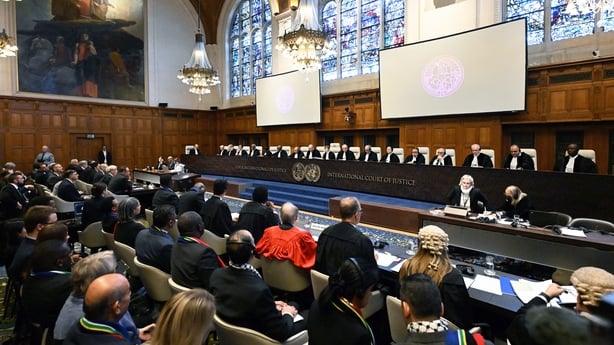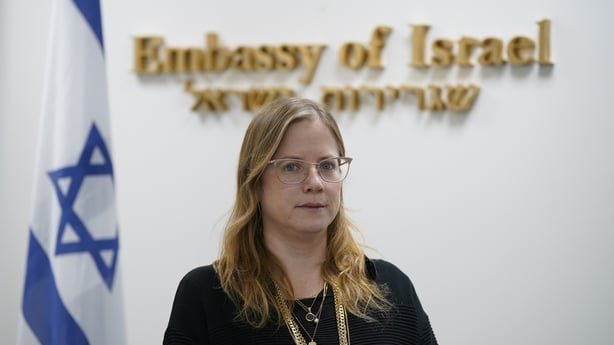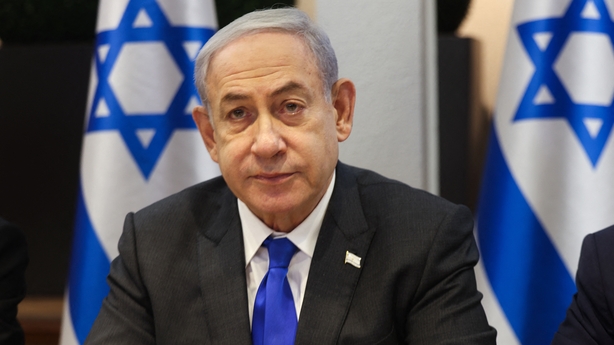South Africa has asked the top UN court to order Israel to immediately suspend its military operation in Gaza, where it says Israel is committing genocide against Palestinian civilians.
The demand came at the closing of the first day of hearings of a case brought by South Africa against Israel at the International Court of Justice (ICJ).
Israel will respond to the allegations tomorrow.

South Africa accused Israel of subjecting Palestinians to genocidal acts and demanded an emergency suspension of Israel's military campaign in the Palestinian enclave.
"South Africa contends that Israel has transgressed Article Two of the (Genocide) convention, committing acts that fall within the definition of genocide," Adila Hassim, advocate of South Africa's high court, told the ICJ.
"The actions show a systematic pattern of conduct from which genocide can be inferred."
South Africa points to Israel's sustained bombing campaign which has killed over 23,000 people in the small, densely populated territory, according to Gaza health authorities.
South African President Cyril Ramaphosa said his country was driven to bring the case by "the ongoing slaughter of the people of Gaza", and motivated by South Africa's own apartheid history.
"Israel has a genocidal intent against the Palestinians in Gaza," Tembeka Ngcukaitobi, advocate of the High Court of South Africa, told the court in the Hague.
"The intent to destroy Gaza has been nurtured at the highest level of state."

However, he said that when it comes to the issue of genocide "that's a very particular matter and the International Court of Justice (ICJ) will now have to rule on that, and it may take many years before they rule on that".
Israel has said South Africa's case is baseless.
In a statement this afternoon, the Israeli Ambassador to Ireland Dana Erlich said: "Israel categorically rejects the outrageous blood libel presented in the application to the International Court of Justice.
"The absurd application to the ICJ by South Africa ignores the many complexities of the situation, which was forced upon Israel and distracts the world from the important efforts for de-escalation.
"It does not benefit the people of Gaza nor the region, nor contributes in any way to finding a just outcome.
"Such unfounded charges that are leveled against Israel only serves Hamas and extreme Islamist terror organisations."
Israeli government spokesperson Eylon Levy compared the lawsuit to a centuries-old anti-semitic conspiracy theory falsely accusing Jews of killing babies for rituals.
"The State of Israel will appear before the International Court of Justice to dispel South Africa's absurd blood libel, as Pretoria gives political and legal cover to the Hamas rapist regime" he said.
Israel launched all-out war after a cross-border rampage on 7 October by militants of Gaza's ruling Palestinian Islamist group Hamas in which Israel says 1,200 people were killed and 240 taken hostage back to Gaza.
The ICJ is expected to rule on possible emergency measures later this month. The court will not rule at that time on the genocide allegations - those proceedings could take years.
The ICJ's decisions are final and without appeal, but the court has no way to enforce them.

Thousands of pro-Israel protesters marched in freezing temperatures in The Hague, carrying Israeli and Dutch flags and posters with images of people taken hostage by Hamas.
Heavy police presence made sure the pro-Israel march and a pro-Palestinian march were kept separate.
Gabi Patlis, a native of Tel Aviv who now lives in the Netherlands, said it was painful to hear Israel accused of genocide.
"Especially after 7 October - we were the ones that were attacked," he told Reuters at the rally.
Israel says allegations baseless
The 1948 Genocide Convention defines genocide as "acts committed with intent to destroy, in whole or in part, a national, ethnical, racial or religious group".
Israeli forces launched their offensive after Hamas fighters carried out a lightning attack across the border in what became the deadliest day in Israel's 75-year history.
Since then, the offensive has laid much of densely populated Gaza to waste, and nearly all its 2.3 million people have been driven from their homes at least once, causing a humanitarian catastrophe.
Israel has denied the genocide accusations as baseless and accused South Africa of playing "advocate of the devil" for Hamas.
Speaking ahead of the ICJ hearings, Israeli Prime Minister Benjamin Netanyahu said: "I want to make a few points absolutely clear: Israel has no intention of permanently occupying Gaza or displacing its civilian population.
"Israel is fighting Hamas terrorists, not the Palestinian population, and we are doing so in full compliance with international law."
In its court filings, South Africa cites Israel's failure to provide food, water, medicine and other essential assistance to Gaza, where Hamas seized power in 2007, two years after Israel ended a 38-year occupation.
South Africa and Israel are both parties to the convention, which obliges them to not commit genocide and also to prevent and punish it.
Further proceedings at The Hague can be watched on the RTÉ News channel tomorrow.

